Today’s shoppers don’t wait for emails or callbacks; they want answers in real time, on the platform they use the most. That’s where WhatsApp CRM integration reshapes the entire customer journey.
Think of it less as a tool and more as an ecosystem where CRM for WhatsApp turns casual chats into traceable, data-rich interactions. When you integrate WhatsApp with CRM, every conversation becomes a touchpoint for conversion, nurturing, and retention. This is where automation meets authenticity, a space where a WhatsApp integrated CRM helps brands listen, respond, and sell smarter.
For e-commerce leaders, this isn’t an upgrade, it’s a competitive edge. The future belongs to businesses that align speed with personalization. Through this guide, we’ll explore how CRM WhatsApp integration fuels measurable growth, reduces manual follow-ups, and creates customer relationships that last beyond the checkout.
Why the Chat-First Generation Demands More?
Let’s begin with the context. Messaging apps aren’t just alternatives, they’re the dominant mode of digital relationship today. One study found message open-rates north of 98% on platforms like WhatsApp, with inbound responses happening within five minutes in many cases.
For e-commerce brands, that means an enormous opportunity: you’re reaching customers on their preferred platform rather than forcing them to navigate a website or respond to an email. But to unlock that, you need the infrastructure to track, respond and convert these conversations, not manually, but via a true integrated WhatsApp with CRM architecture.
When a customer sends a WhatsApp message, “Is this item in stock?” or “When will this ship?” that should trigger a lead record, note in the system, and automation sequence if needed. A hybrid of WhatsApp CRM software and best-practice workflows. Without this, the chat remains isolated. With it, you create a full customer journey.
What’s the Impact in E-Commerce?
By analysing recent industry data and case studies, the following patterns stand out:
- Automation of routine messaging via chat + CRM can reduce first-reply times by up to 80% and improve customer satisfaction by around 30 %.
- E-commerce brands making use of conversational commerce via messaging + CRM saw 25-40 % higher conversion rates compared with legacy channels (email or generic chat).
- Centralising all interactions, chat, email, WhatsApp; via one system gave companies a 67 % improvement in communication efficiency.
These findings underline a truth: the channel (WhatsApp) is valuable, but the system (CRM) makes the difference. Brands that simply add WhatsApp but don’t integrate it into their sales, support and marketing systems fail to capture the real value. That’s where CRM integration with WhatsApp becomes a competitive advantage.
Strategic Use Cases for E-Commerce Brands
Abandoned Cart Recovery
A shopper clicks “Check out” but doesn’t complete. Because you have WhatsApp integrated CRM, the system triggers a message: “Hey Jane, you left behind the XYZ bag. Want help completing checkout or looking at similar ones?” You follow up with an offer or support in chat, converting that lost sale.
Live Product Discovery
A shopper clicks “Need help?” WhatsApp chat pops. A chat route checks their history (via CRM), suggests items, shares images, sends a buy-now link. This conversational journey reduces friction and mimics in-store customer service.
Post-Purchase Loyalty Journey
After shipping, the system sends: “Your order is on the way. Want add-ons or track your delivery?” A few days later: “Thanks for shopping. Here’s 10 % off your next purchase. Want to see what other customers like you bought?” This kind of follow-up nurtures loyalty and builds repeat revenue.
Implementation Blueprint: How to Execute?
Choosing a CRM
- Select an integration-capable CRM solution supporting WhatsApp business API CRM integration like Picky Assist.
- Configure WhatsApp number, verify account, set up chat-routing.
- Map existing CRM system fields into WhatsApp chat workflows.
Lead & Sales Integration
- Implement click-to-chat from website/social, auto-create lead in CRM.
- Build initial automation: greeting, qualification questions, tag routing.
- Set up sales alerts for high-value chat leads.
Post-Purchase & Loyalty Automation
- Sync order data to CRM, trigger WhatsApp messages for confirmation, delivery, review.
- Design segmentation for repeat buyers, inactive customers, VIPs.
- Launch conversational campaigns: feedback, cross-sell, referrals.
Analytics & Optimisation
- Track KPIs: chat-to-order conversion, response time, repeat purchase rate.
- Use data in CRM software to refine messaging, segment flows, agent workflows.
- Scale operations, expand to multilingual markets, integrate voice/video chat as needed.
Why do Brands Choose Picky Assist as their Chat-CRM Stack?
Picky Assist is one of those platforms, it enables true WhatsApp CRM integration rather than just a chat plugin. Here’s why:
- It offers multi-agent dashboards, chatbots, tagging and lead-routing all tied into your CRM.
- It supports CRM with WhatsApp integration across major CRMs (HubSpot, Zoho, Salesforce, custom).
- It unifies chat, orders and customer history into one data model, essential for personalized e-commerce experiences.
- It emphasises the human-first approach: conversational flows, not spammy broadcasts.
In short, if you’re looking to truly integrate WhatsApp into your e-commerce operations—not just as a channel but as an ecosystem, this is the kind of solution you need.
Risks and Pitfalls to Avoid
- Treating WhatsApp like a broadcast channel: If you send irrelevant messages, customers will unsubscribe. Messaging must feel personal and contextual, not spam.
- Lack of workflow design: If chats aren’t routed, tagged or followed-up, you’ll lose leads. A CRM with WhatsApp integration must drive processes, not just logging.
- Over-automation without human touch: Bots are powerful but need fallback to agents for complex queries, especially in e-commerce where trust matters.
- Ignoring analytics: Without measuring chat-to-order, repeat-rate impact, you’ll be flying blind. Use your WhatsApp CRM tool to monitor and improve.
The Future: Conversational Commerce & Chat-Native Shopping
We’re heading into a world where the entire purchase journey moves into chat: product discovery via WhatsApp, buying in chat, updates in chat, loyalty and referrals in chat. One research piece noted that IM-based commerce platforms are reshaping purchasing behaviour by leveraging existing trust networks and immediate interactions.
For e-commerce brands that embrace CRM with WhatsApp integration today, the competitive advantage won’t just be higher conversions, it will be deeper loyalty, faster operational cycles and richer data-driven relationships.
Conclusion
If your e-commerce business is still relying on siloed chat apps, separate CRMs and disconnected support workflows, you’re leaving revenue and loyalty on the table. WhatsApp CRM integration is not about adding another channel; it’s about transforming how your brand interacts with people.
By adopting a true WhatsApp integrated CRM, automating intelligent workflows and maintaining a human touch through platforms like Picky Assist, you’ll be positioned to compete, convert and retain in the chat-first buying era.
FAQs on WhatsApp CRM
1. What exactly is WhatsApp CRM integration?
It’s the process of combining WhatsApp messaging capabilities (via official API or Business tools) with CRM systems so that customer chats, purchase history, and agent workflows operate in one unified environment. Instead of separate messaging apps and spreadsheets, every conversation is logged, tagged, and routed via your CRM.
2. Can smaller e-commerce brands use CRM with WhatsApp?
Absolutely. Even SMEs benefit from WhatsApp integrated CRM by automating key touchpoints: cart reminders, shipping updates, quick replies. When implemented thoughtfully, even businesses with small teams can leverage automation and human-touch balance.
3. Does CRM for WhatsApp guarantee higher sales?
No tool guarantees results, but when you combine timely chat responses, data-driven message content and seamless purchase experience, conversion rates consistently improve. Research shows brands using this kind of architecture recorded 25-40 % higher conversions.

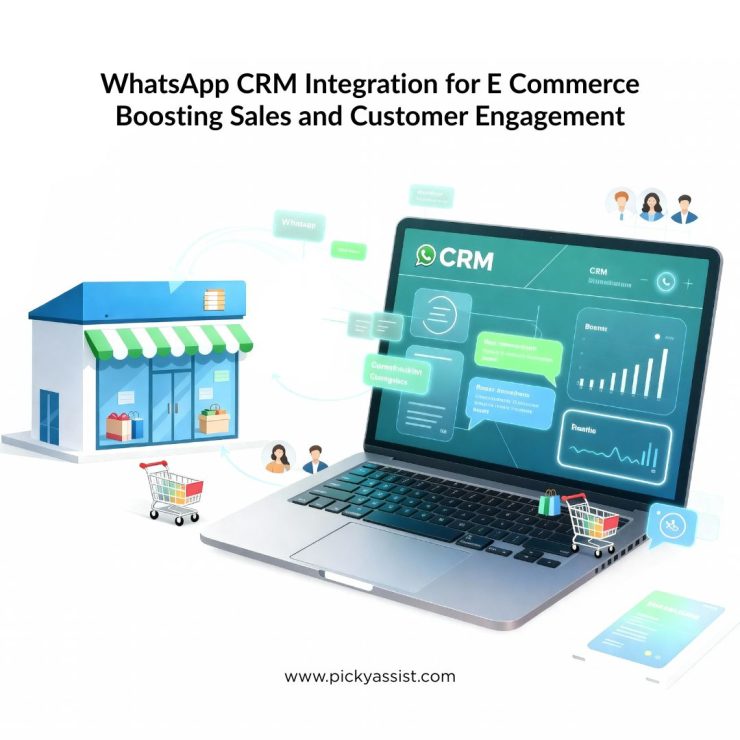
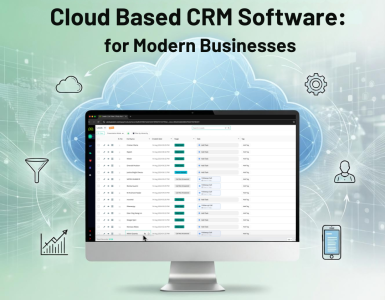
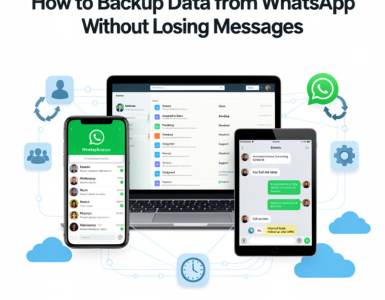
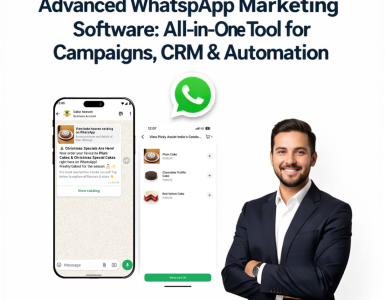
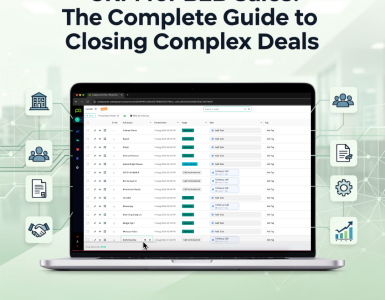
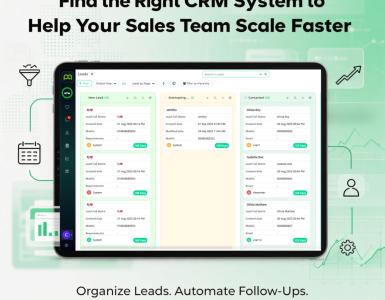
Add comment